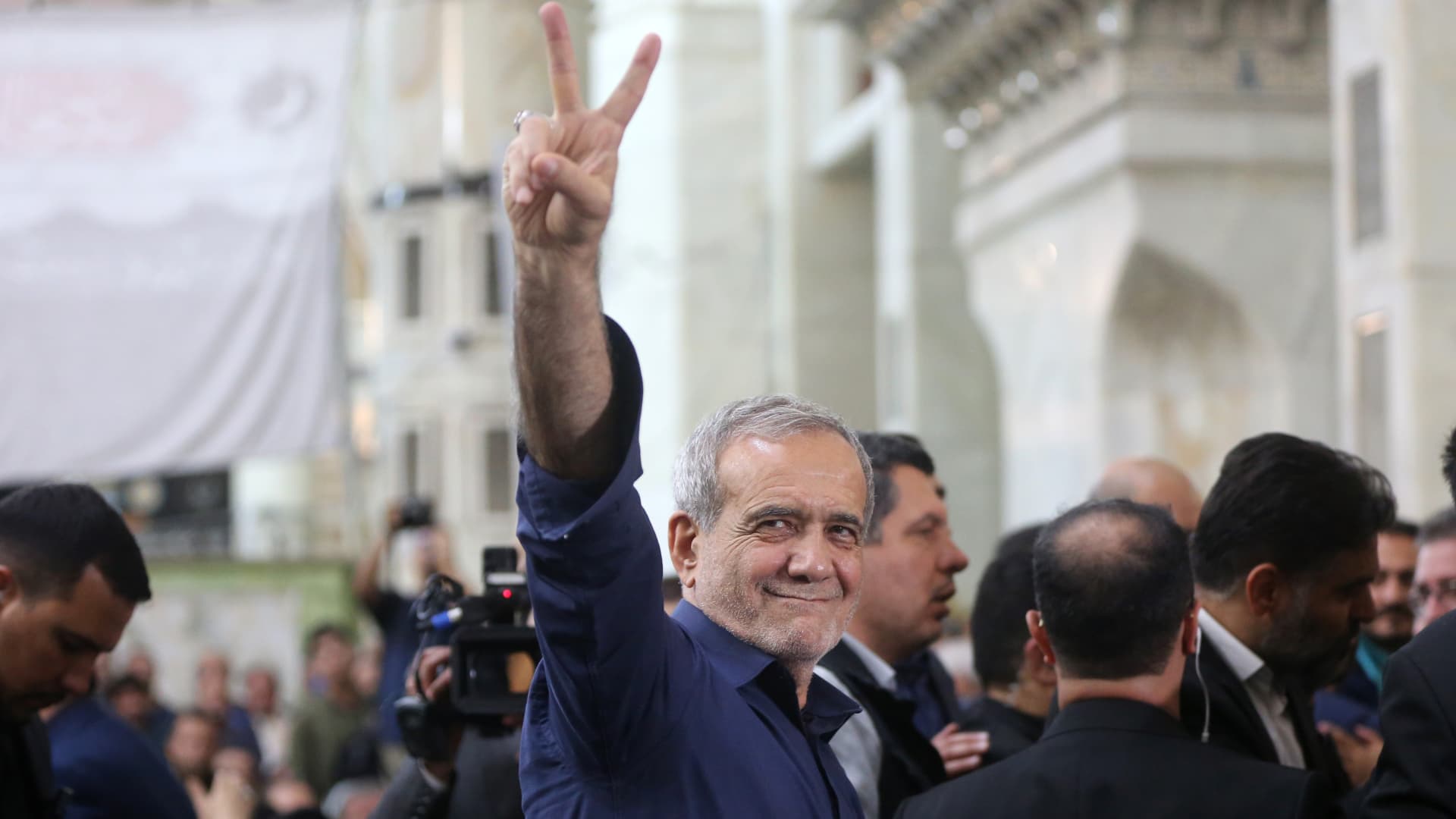Newly-elected Iranian President Masoud Pezeshkian visits to the shrine of the Islamic Republic’s founder Ayatollah Ruhollah Khomeini in Tehran, Iran on July 06, 2024.
Fatemeh Bahrami | Anadolu | Getty Images
Iran on Friday elected its first “reformist” president in 20 years, signaling many voters’ rejection of hardline conservative policies amid low turnout of just 49%, according to official figures.
Masoud Pezeshkian, a former health minister and member of parliament, was the most moderate of the candidates vying for the presidency after the sudden death of former President Ibrahim Raisi in a helicopter crash in May.
Described as a “token reformist” and “second-tier candidate” by many analysts, the 69-year-old Pezeshkian was seen as having scant chance at the presidency as he lacked name recognition and was up against a highly conservative system.
“The whole election process leading to Pezeshkian’s victory now has indeed been surprising. It does mark a notable shift in Iran’s political landscape,” Sina Toossi, a senior non-resident fellow at the Center for International Policy, told CNBC.
The result, Toossi said, “reflects a complex interplay of voter discontent, abstention, and a desire for change. Despite the heavily controlled and undemocratic nature of the election process, Pezeshkian’s success signals a rejection of hardline extremism and an appetite for reform and better relations with the global community.”
Supporters attend a campaign rally for reformist candidate Massoud Pezeshkian at Afrasiabi Stadium in Tehran on June 23, 2024 ahead of the upcoming Iranian presidential election.
Majid Saeedi | Getty Images News | Getty Images
His victory at the polls was all the more surprising given the fact that Iran’s ultra-conservative Guardian Council decides who is allowed to run for election in the first place, heavily favoring conservative candidates.
Still, Pezeshkian “faces substantial challenges from entrenched hardliners and external pressures, making his presidency a critical and uncertain chapter for Iran’s future,” Toossi said.
How much can change, really?
Pezeshkian, a former heart surgeon who served as minister of health under the 1997-2005 mandate of Iran’s last reformist president Mohammad Khatami, said he wants to loosen social restrictions like Iran’s strict hijab law and improve relations with the West, including potentially restarting nuclear talks with world powers.
But “reformist” is a relative term in Iran, as Pezeshkian still voices…
Click Here to Read the Full Original Article at Top News and Analysis (pro)…


